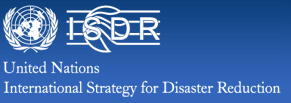The UN Office for Disaster Risk Reduction (UNISDR) has begun training programmes for local governments, focusing on developing strategies based on action priorities outlined in the Sendai Framework for Disaster Risk Reduction (DRR), agreed in March 2015, which emphasizes the role of local governments in achieving DRR and a reduction in the loss of lives, livelihoods and health over the next 15 years.
 24 July 2015: The UN Office for Disaster Risk Reduction (UNISDR) has begun training programmes for local governments, focusing on developing strategies based on action priorities outlined in the Sendai Framework for Disaster Risk Reduction (DRR), agreed in March 2015, which emphasizes the role of local governments in achieving DRR and a reduction in the loss of lives, livelihoods and health over the next 15 years.
24 July 2015: The UN Office for Disaster Risk Reduction (UNISDR) has begun training programmes for local governments, focusing on developing strategies based on action priorities outlined in the Sendai Framework for Disaster Risk Reduction (DRR), agreed in March 2015, which emphasizes the role of local governments in achieving DRR and a reduction in the loss of lives, livelihoods and health over the next 15 years.
The first two of these training programmes, within the EU, were undertaken in July in the Canary Islands, Spain, and Potenza, Italy. UNISDR’s Global Education and Training Institute (GETI), which is based in Incheon, Republic of Korea, led the ‘training-of-trainer’ workshops.
Nicola Valuzzi, President, Potenza Province, stressed that his province’s resilience implementation process is part of a comprehensive territorial strategy that includes full engagement in process related to the Sendai Framework, climate change and the post-2015 sustainable development agenda.
Sanjaya Bhatia, GETI, stated that GETI passes on training to the local communities in order to: scale-up DRR and implementation on the ground; and ensure that civil society and experts pass on this knowledge to others.
Each of the events brought together over 40 local government and academic participants to focus on: an integrated approach to DRR and climate change adaptation; how to assess disaster resilience; and how to develop strategies and action plans to address vulnerabilities.
Participants also discussed UNISDR’s ‘Making Cities ResilientCampaign,’ of which both the Canary Islands and Potenza Province are active participants. The Campaign focuses on ‘Ten Essentials’ for urban risk reduction, which are in line with the Sendai Framework’s four priorities for action, namely: community participation and understanding of disaster risk; strengthening disaster risk governance; investment; and disaster preparedness for response and recovery.
The ‘Ten Essentials’ of the Campaign include: organizing and coordinating to understand and reduce disaster risk, with civil society participation, and building local alliances; assigning a DRR budget, and providing incentives for homeowners, low-income families, businesses and others to invest in DRR; maintaining up-to-date data on hazards and vulnerabilities, preparing risk assessments and using them for urban development plans and decisions; investing in and maintaining infrastructure that reduces risk; assessing the safety of schools and health facilities and upgrading them as necessary; applying and enforcing risk compliant building regulations and land-use planning principles; ensuring the establishment of education programmes and training on DRR in schools and local communities; protecting ecosystems and natural buffers to mitigate floods and storm surges, and adapting to climate change building on risk reduction practices; installing early warning systems; and ensuring that the needs of disaster survivors are central to reconstruction. [UNISDR Press Release] [Making Cities Resilient Campaign Website]